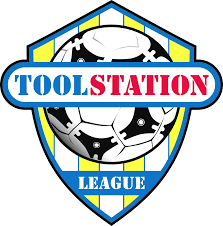Football’s social, economic and even political power, particularly that wielded at the pinnacle of the professional game, gives the impression that the sport has never been in better health.
Yet at the bottom end of the pyramid, Football Clubs are experiencing the same difficulties as any other voluntary or community group. From the impact of inflation on everything from food to energy, to the challenges of recruiting and retaining volunteers, grassroots football as I understand it, is experiencing circumstances so challenging that they represent a clear and present danger to the future of the non-league game.
I say grassroots football as I understand it, because the FA define grassroots football as “any football where the main driver is the love of the game and all the social and health benefits from playing coaching, refereeing and volunteering. Essentially, this covers all non-professional and non-elite football”. Non-elite football is a concept we became familiar with during the Coronavirus pandemic, when it’s definition enabled Non-League Clubs at the Southern League level and below, to re-admit spectators. So this means there is non-league football, non-elite football and grassroots football and the Toolstation Western League sits at the frontier of all three.
Research I conducted with Western League players at the start of last season suggested that 13% were considering leaving the non-league game. From a population of only 53 respondents this might appear a relatively poultry number, but that number is made up of those players who bothered responding to the survey, a disappointingly low level of engagement, mirrored by a similar effort I undertook at the start of the previous season. If nothing else, this demonstrates that footballers, in research terms, are a hard-to-reach group. Yet they’re proving equally hard-to-reach for Managers, with many of the people I speak to on the Toolstation Western League Podcast talking about unprecedented availability issues.
Historically, the opportunity to compete in the Western League was an endorsement of a players prowess. A benchmark that separated the Sunday morning footballer from one capable of competing in the National League System. The Western League has always covered the whole of the South West of England, with teams from Bristol and Wiltshire competing against top Cornish sides in Falmouth Town and Saltash United. Whilst older supporters and Club Officials look back with affection on these halcyon days, the reality of four hour coach journeys (one way) has left many players in the modern game, particularly those with young families and the self-employed, questioning whether their time on a Saturday afternoon wouldn’t be better spent doing something else.
Football, like many recreational activities, finds itself in an increasingly crowded space, where people’s commitment can be described as transient at best. The limited money that compensated players for their time on a Saturday afternoon has become every bit as stretched as any other pay packet during this cost-of-living crisis.
Non-league football can’t even fall back on its ability to pay it’s way out of its recruitment and retention difficulties. That said, the cream will always rise to the top and the best players, particularly those with aspirations to play professionally, will always want to play for the best Clubs, wishing to test themselves at the highest possible level. But the aspirations of the few may mask the apathy of the many and this is the challenge that the footballing authorities, the Clubs and the Leagues need to address.
Next week, I will consider how the Football Association and the “non-elite” football leagues can hope to address the challenges I’ve described in this article.
Ian Nockolds





Comments
This article has no comments yet. Be the first to leave a comment.